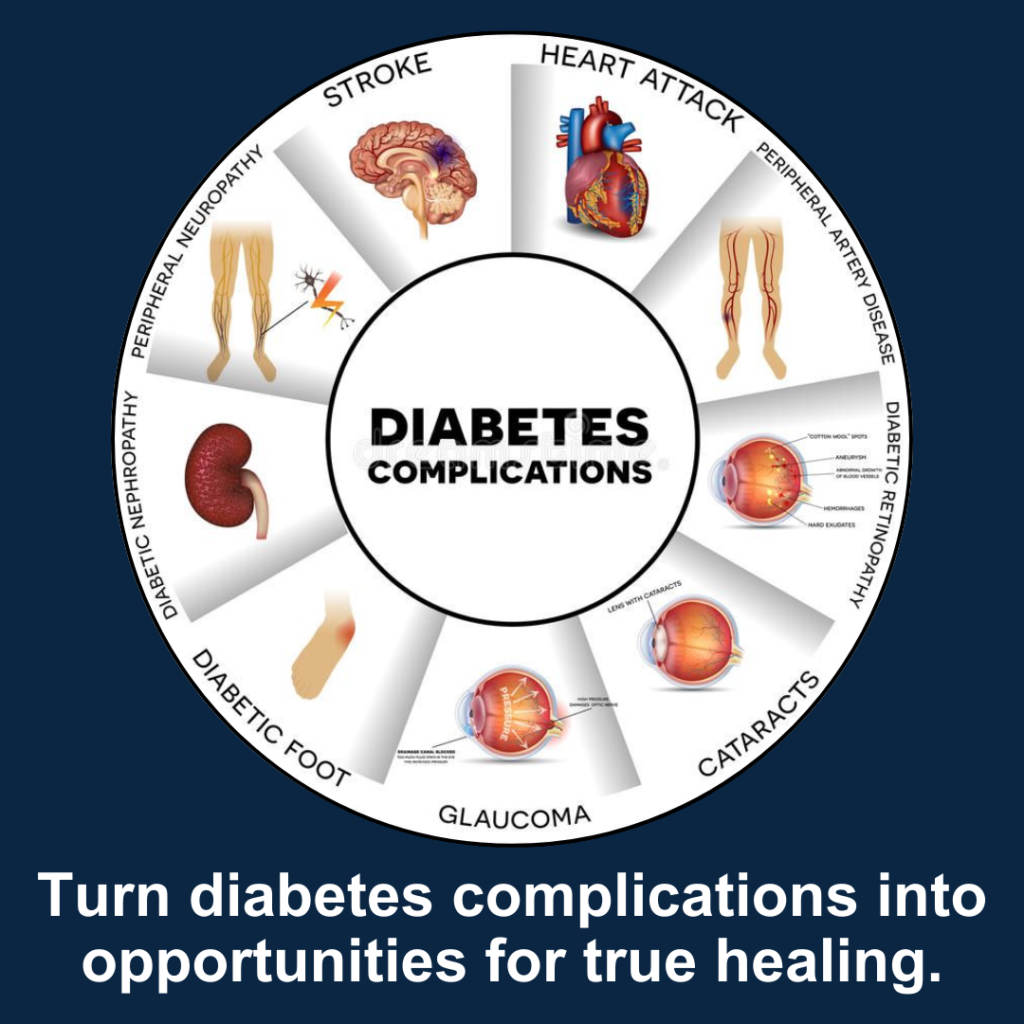Diabetes is more than a matter of blood sugar levels; it’s a condition that impacts nearly every system in the body. Over 500 million people worldwide live with diabetes, a number projected to rise due to lifestyle factors and aging populations. From heart and kidney health to vision and nervous system function, diabetes affects us on a profound level. But there’s hope—and there are ways to manage and even prevent complications. At the Centre for Optimum Health (CFOH), we believe in a proactive, whole-person approach to managing diabetes. Our goal is to empower people with tools that address the root causes, boost metabolic health, and help everyone on their journey toward lasting wellness.

Diabetes’ Impact on the Body
Diabetes can significantly impact various organs and systems, potentially leading to complications if left unmanaged:
1. Heart and Blood Vessels
- Cardiovascular Disease: Diabetics are twice as likely to develop heart disease due to damage to blood vessels and high blood pressure.
- Hypertension and Cholesterol: Uncontrolled blood sugar levels can lead to high blood pressure and cholesterol, which heightens cardiovascular risks.
2. Kidneys
- Diabetic Nephropathy: High glucose levels damage kidney filtration, potentially leading to chronic kidney disease and even kidney failure if untreated.
3. Eyes
- Diabetic Retinopathy: A common complication causing damage to blood vessels in the retina, which can lead to blindness.
- Other Eye Conditions: Increased risk of cataracts and glaucoma among diabetics.
4. Nerves System
- Peripheral Neuropathy: Damage to nerves, especially in the extremities, causing pain, tingling, or numbness.
- Autonomic Neuropathy: This can affect the heart, digestive system, and sexual function.
5. Oral Health
- Gum Disease: Higher glucose levels can lead to gum inflammation, making diabetics more susceptible to infections and slower healing of oral tissues.
6. Digestive System
- Gastroparesis: A condition where stomach emptying is delayed, leading to nausea, vomiting, and digestive complications.
7. Skin
- Diabetics are prone to skin infections, dryness, and circulation problems due to poor blood flow and higher susceptibility to infections.
